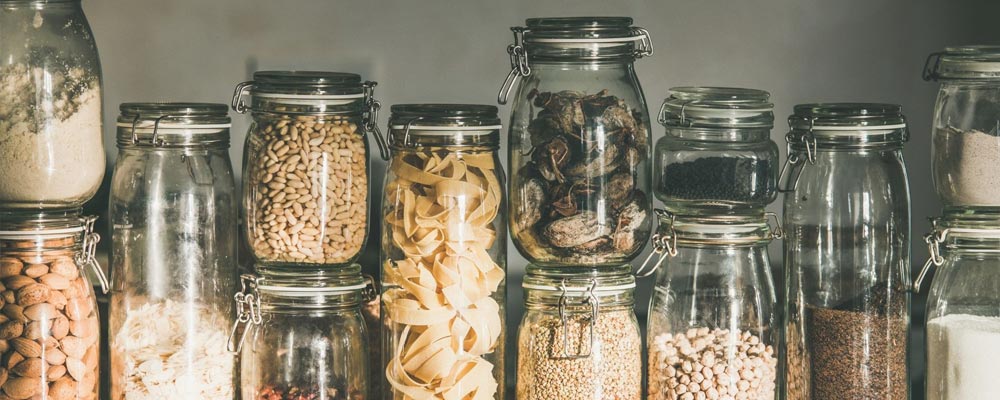
Planning makes a big difference in how you can respond during an emergency. Know which types of disasters could affect your home and be prepared with water, food, and supplies to last for several days.
A simple food checklist could save you a lot of stress.
Everyone should start with a basic emergency supply kit, including a supply of non-perishable food. Make a stockpile of canned goods, dry mixes, and other pantry staples. Ideally, you should include foods that do not require water, cooking, or special preparation.
Basic Food Storage Tips:
- Keep canned goods and pantry items tightly sealed and in a cool, dry place.
- Replace expired items as needed. However, not all items are unsafe to eat after the “best by” date. Learn more about food expiration dates from WebMD.
- Do not consume food from cans that are dented, swollen, or corroded.
- Keep a supply of ready-mix formula for infants.
- If you enjoy milk in your tea or cream in your coffee, consider keeping a supply of dehdrated milk and/or cofee creamer in the pantry.
- Include a few extra utensils and a backup can opener with your food supply.
- Consider learning how to dehydrate your own fruits, vegetables, and meats (e.g. beef jerky). It’s actually fairly inexpensive and easy to learn.
- Consider learning how to can your own sauces, soups, vegetables, friuts, and other staples.
A disaster response plan and well-stocked emergency kit will greatly reduce the fear and anxiety that comes along with a disaster.
Visit READYColorado and Ready.gov for more emergency preparedness tips and toolkits.

